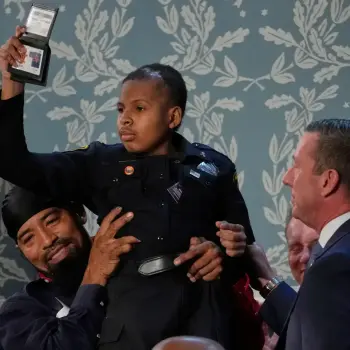In a recent podcast, Michelle Obama said of her life in coronavirus quarantine, “I know that I am dealing with some form of low-grade depression.” She’s not alone.
According to the National Health Interview Survey, one in three American adults report symptoms of an anxiety disorder, up fourfold from a year ago. The Kaiser Family Foundation notes that 53 percent of American adults report negative impacts on their mental health from worry and stress related to the pandemic; this is up from 39 percent in May.
Sixty percent of us believe the worst effects of the pandemic are still to come; only 20 percent say the worst is behind us. We are more pessimistic than we were in late April, when 51 percent thought it would get worse and 31 percent thought the worst was over.
And 70 percent of parents worry that their children will become sick with COVID-19 if they return to school this fall; 79 percent worry that teachers will get sick as well.
In response to this data, New York Times opinion columnist Jennifer Senior quotes psychologist Daphne de Marneffe, who explains our feelings as the pandemic continues: “People often think of trauma as a discrete event—a fire, getting mugged. But what it’s really about is helplessness, about being on the receiving end of forces you can’t control. Which is what we have now. It’s like we’re in an endless car ride with a drunk at the wheel. No one knows when the pain will stop.”
Here’s one way to respond to the pain: let’s shift our focus on this “endless car ride” from the driver we cannot control to the passengers we can serve.
Ralph Waldo Emerson noted: “The purpose of life is not to be happy. It is to be useful, to be honorable, to be compassionate, to have it make some difference that you have lived and live well.”
In turns out, scientific research agrees.
Through fMRI technology, we now know that giving to others activates the same parts of the brain that are stimulated by food and sex. Experiments show that altruism is pleasurable. Helping others helps us to be healthier, more productive, and find greater meaning in our lives.
And when we serve, we experience the God who serves.
Many in our secular culture believe that if God exists at all, he is a deistic clockmaker who made the world but has nothing to do with it now. Many also believe that if religion has any value at all, it is reserved for Sunday rather than Monday, church rather than the “real world.”
The opposite is actually true: our Creator entered his creation at Christmas (Matthew 1:23) and has never left (Matthew 28:20). He cares about the poor, the captive, the blind, and the oppressed (Luke 4:18). We are now the continuing presence of Christ in the world (1 Corinthians 12:27) called to incarnate his compassion today (1 John 3:17).
As Henry Blackaby reminded us, the key to experiencing God is finding where he is at work and joining him there. When we do, God works through us to bring hurting souls to himself. And he works in us to manifest the fruit of his Spirit (Galatians 5:22–23).
The love, joy, and peace that result are what our souls need in a pandemic. And what the world needs as well.
Jim Denison, PhD is the founder of Denison Forum with a reach of 1.8 million. He also serves as Resident Scholar for Ethics with Baylor Scott & White Health, Senior Fellow for Cultural Studies with Dallas Baptist University, and Senior Fellow with 21Wilberforce in Washington, DC. The author of more than 15 books, he has taught philosophy of religion and apologetics with four seminaries and pastored five churches with a combined membership of more than 20,000.
© 2020 Denison Forum. All rights reserved.











